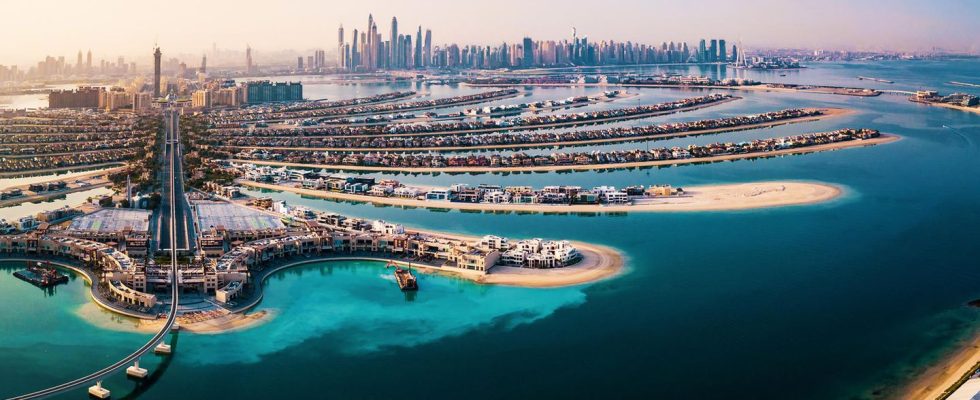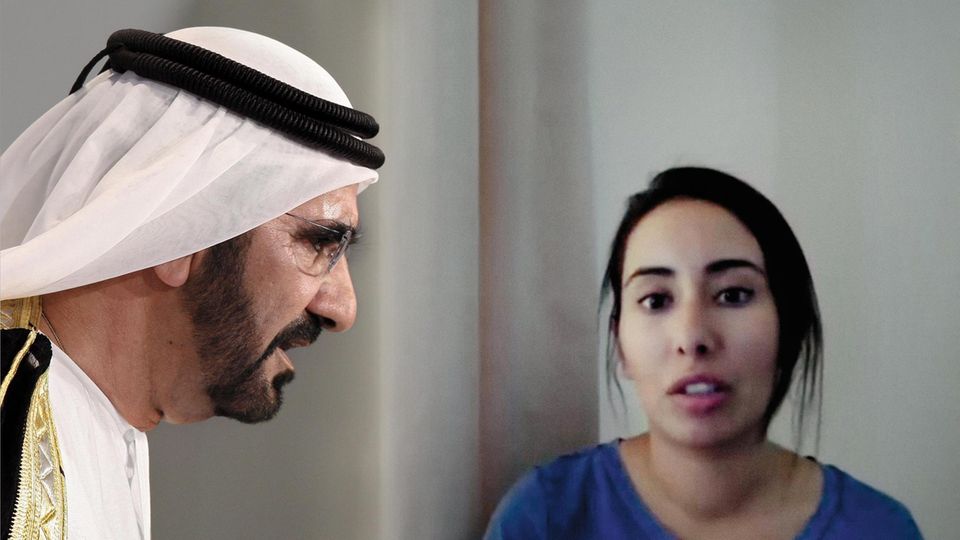Dubai is best known for its superlatives. But the Arab Emirate is not only characterized by luxury and skyscrapers. But you might only learn a few things about Dubai once you’ve been there.
The highest building of the world. The biggest mall. The largest water park. The fastest police cars. Yes, Dubai is not considered a city of superlatives for nothing. A number of free spirits and visionaries from all over the world have been cavorting in Dubai for decades, always trying to somehow make the seemingly impossible possible. The result is a city in constant flux – and striving for more. More luxury, more options, more freedom. This is exactly the reason for many holidaymakers to travel to the emirate.
But anyone who has been there knows: The superlatives are only the flagship of Dubai, but only a small piece of the puzzle of what the city has to offer. We’ve collected eight surprising insights about Dubai that you probably only get after experiencing the city.
Dubai: Eight insights into the city of superlatives
One: There is not just one Dubai – there are definitely a hundred different versions
When men in kandora (long white robes) stand at the traffic light next to women in hot pants and bikini tops without looking askance at each other, then you have probably arrived in Dubai. Both live in the same city, but probably in completely different worlds. If you ask the local people what makes Dubai special for them, then it is above all the internationality of the place. The approximately 3.3 million inhabitants of the city now come from more than 190 countries worldwide – and give the city an urban but also elusive vibe. There is not one Dubai, but many. Because every nationality also brings its own culture and cuisine to Dubai in order to live it out authentically there.
Two: The dress code isn’t seen that narrowly in Dubai – at least most of the time
Speaking of hot pants: the many experts who have emigrated to Dubai in recent years have also relaxed the dress code somewhat. If you read up on how to dress in Dubai on the Internet, you will often get the recommendation to always cover your knees and shoulders. However, hardly anyone sticks to it – especially in the areas popular with experts. And anyone who observes the interplay of classic Emiratis and the somewhat more permissive immigrants quickly gets the impression that neither party is bothered by the quiet compromise. However, there are areas where mostly Muslims live – for example The Greek. There it is still appropriate to wear slightly longer clothing.
Three: You won’t find original nature in Dubai – it’s still green
Dubai has developed into a world metropolis in the last 50 years. Where there used to be only the desert, there are now holiday resorts, shopping centers and skyscrapers. The original nature can therefore hardly be found in the city center. But there are still manicured green areas, palm gardens and beaches in Dubai – artificially created. Untouched nature can only be found outside the city limits – for example 100 kilometers south-east of Dubai in the Hatta Mountains or in the desert about an hour’s drive away.
Four: If you live in Dubai, you don’t have to worry about your luggage – or your apartment
Dubai is one of the countries with the lowest crime rate, officially it is almost zero. First of all, that’s no secret. But how much the residents of the emirate rely on their local security confuses the German need for control. It often happens that the Emiratis don’t lock their apartment door or even leave the house without a key. Many people in Dubai also simply leave their backpacks and bags in the public eye – hardly anyone there is afraid of theft. This is not only due to the strong basic trust of the local people, but also to the fact that most public areas and residential buildings are monitored by cameras. So the likelihood of being caught committing a crime is very high – and penalties range from flogging to jail time to the death penalty.
From the scent of Dubai to the woken emirate
Five: You can’t explore Dubai on foot – taxi, Uber or public transport are better
Lisbon, Paris and Milan are popular destinations for city trips – also because the city centers and the most important sights of the metropolises can be discovered on foot. Dubai is different. With an area of 35 square kilometers, the emirate is significantly smaller than, for example, the French capital Paris (102 square kilometers). But Dubai doesn’t really have a city center. Rather, it is divided into many different districts that are well connected to each other. And each of these parts of the city has its own attitude to life, its own highlights and insider tips. The best way to discover Dubai is by public transport, Uber or taxi. Or of course with an ambitious daily march.
Six: Dubai is fragrant wherever you go, and with good reason
A good scent stays in our memories for a long time and, if it reaches our nose again, it also likes to bring old feelings back to life. And anyone who has ever been to Dubai has given their sense of smell a lot of new input. Because fragrances are part of Dubai’s DNA. Almost all public buildings smell pleasantly of a mixture of oud, saffron and a hint of musk. But it is not only there that the often still traditionally produced scented oils play a role: the residents also attach great importance to a good scent – whether in the apartment or on the body. But Dubai doesn’t only smell where scented oils are intended to provide it. You can also smell the sea when you stand on the beach; enjoy the many different culinary smells at the famous Spice Market – and yes, sometimes you can also smell the heat rising from the asphalt or the exhaust fumes of the many cars that drive through Dubai city center every day.
Seven: Dubai does not have to be utopian expensive – if you make compromises
Speaking of the heat: The main travel season for Dubai is with good reason when the temperatures in this country are often below zero, i.e. between October and April. This is when the well-to-do travel from all over the world to the Arab Emirates to spend the winter in pleasant temperatures between 15 and 30 degrees. In the high season, Dubai is often considered a luxury travel destination. There are also accommodations such as hostels or holiday apartments that you can book at a bargain price with a bit of luck. Or you travel when it gets too hot for others in the desert city. In summer, the heat dominates the travel destination, and the thermometer then shows a crisp 50 degrees Celsius. So that the hotels and holiday resorts do not stand empty, many lure people with cheap special offers, especially for families.
Eight: Dubai places great value on wokeness – not just for marketing
Less taxes on alcohol, more commitment to sustainability, freedom as a defining attitude to life: Dubai woke itself. But is the Arab Emirate really as liberal as it seems? The question is difficult to answer, even if you have been there once. Because of course there are many construction sites in the emirate – for example in relation to human rights – that are not exactly characterized by wokeness. Striving for the next superlative and the ultimate luxury experience at the expense of guest workers and the climate is probably the most memorable contradiction in this regard.
But it is also a fact that Dubai is a role model in some other areas. For example, accessibility plays a major role, which is often taken into account when constructing new buildings. In restaurants, information about allergens and food intolerance is extremely pronounced – there are usually alternatives for those affected. And when it comes to sustainability, Dubai is clearly making an effort. For example, the emirate is trying to reduce its own CO2 footprint somewhat with solar systems in the desert or water dispensers in public places. Dubai wants to be climate-neutral by 2050. A lofty goal – but it wouldn’t be the first time that the Arab Emirate, which has developed from a fishing village into a global metropolis in just a few decades, has come as a surprise.
Note: The research was carried out as part of a press trip by Dubai Tourism.


